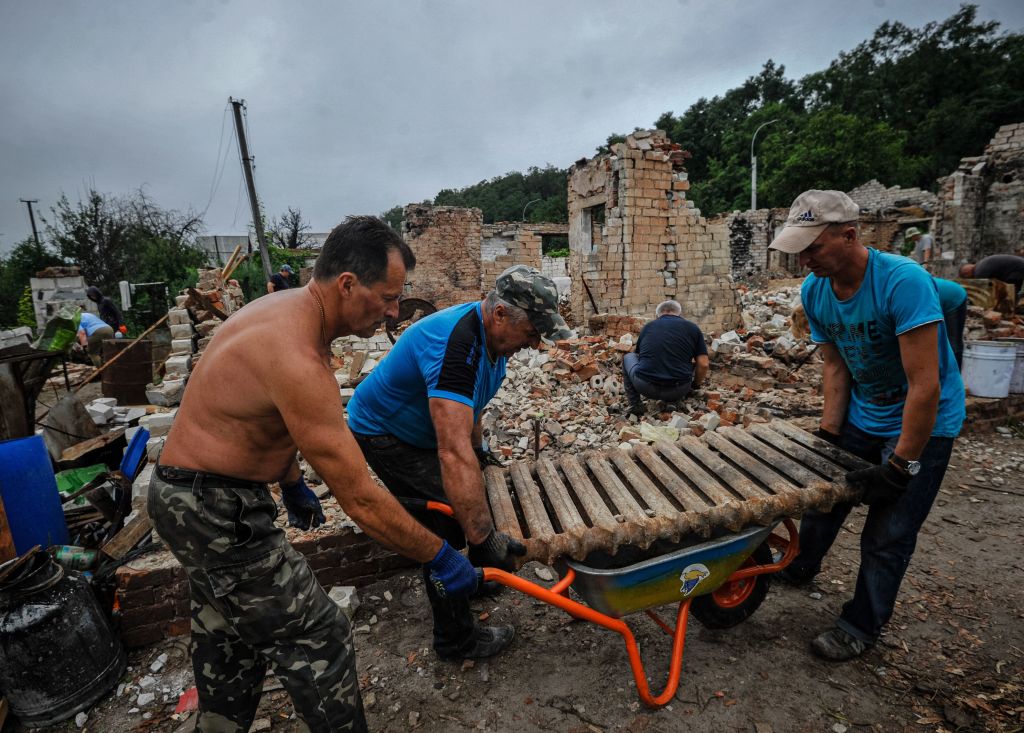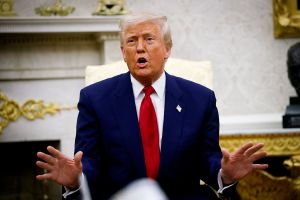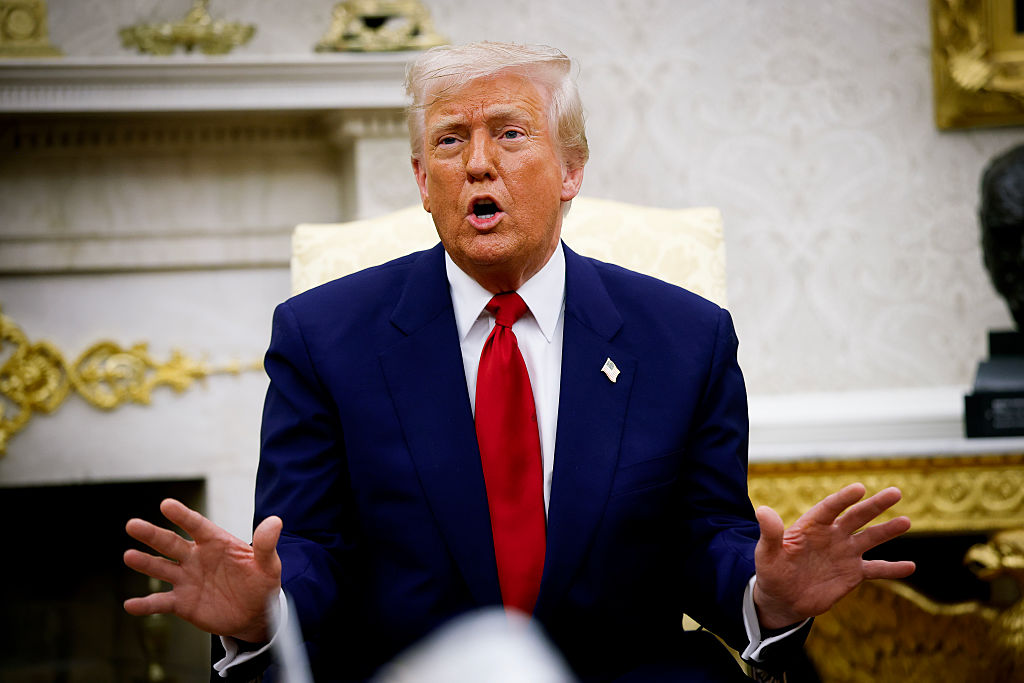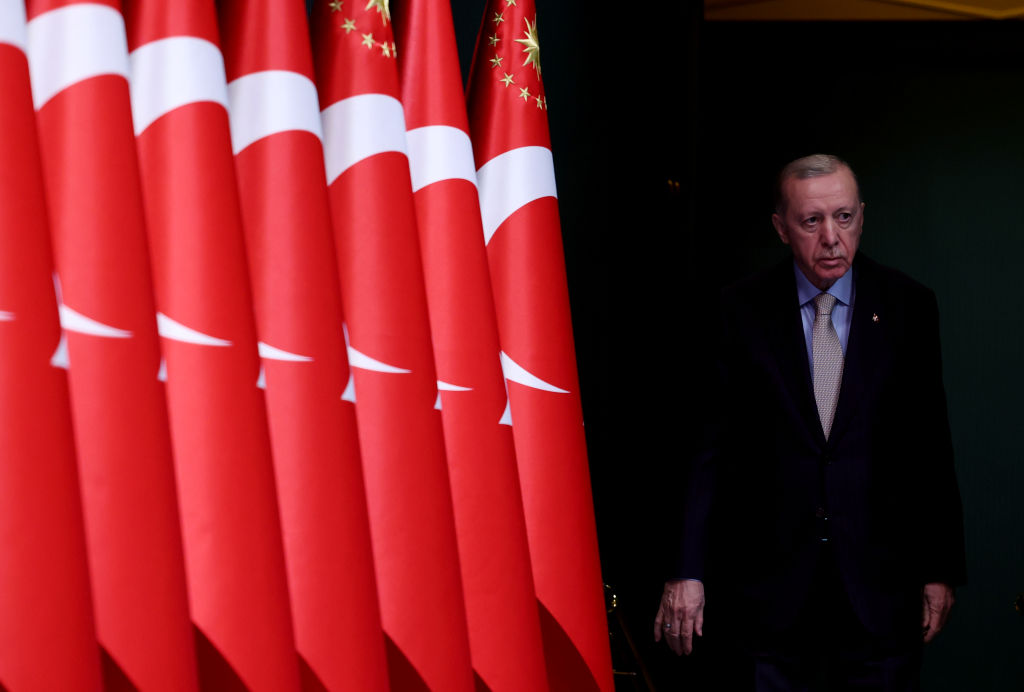Six months ago this week, the United States and its European allies enacted one of the most comprehensive, stringent sanctions regimes against a major economy in history. Russia’s unprovoked invasion of Ukraine on February 24 not only shocked the West’s sensibilities, but pushed Washington and Brussels to take actions that would have been unthinkable only a few weeks prior. As far as the West is concerned, Vladimir Putin’s Russia is nothing less than a dangerous pariah state — and its aggression against a neighboring country meant it had to be treated as one.
As the war settles into a grinding, high-intensity stalemate with little movement along the frontlines, it’s important to evaluate whether the US and European sanctions campaign against the Russian economy is actually achieving the desired results. The verdict is at best mixed.
This may seem like a strange conclusion to make. After all, Russia’s economy has taken a significant hit. The Biden administration’s decision, in coordination with its allies in the G-7, to block roughly half of the Kremlin’s $640 billion in foreign reserves was an unprecedented move against a major economy and wiped out a huge chunk of the country’s rainy day fund. Multiple Russian banks have been kicked off the worldwide Swift payment system. Critical Russian industries like the automobile sector are struggling to maintain operations due to the lack of US-manufactured parts, with production plummeting by more than 60 percent so far this year.
More than 1,000 companies have decided to either curtail operations in Russia or leave the Russian market entirely. According to researchers at Yale University, the flight of foreign capital will reverse about three decades of foreign investment in Russia. The International Monetary Fund assesses Russia’s economy will contract by six percent this year, and the recession is likely to last even longer.
Sanctions, however, shouldn’t be judged solely on the amount of damage they do a targeted economy. The principal objective of economic pressure isn’t to punish a nation for atrocious behavior, bankrupt a country’s finances, or register disapproval about an adversary’s foreign policy — it’s to push a country’s political leadership into changing its behavior in a more positive direction. In the case of Russia, this means compelling Putin to end his aggression in Ukraine, either by withdrawing his forces from the country or entering into serious peace negotiations with Kyiv.
Needless to say, neither of those objectives have been accomplished — and it’s increasingly difficult to envision Putin simply throwing up his hands and suing for peace, particularly at the hands of Western economic pressure. Indeed, Putin appears to be as committed to his military and political objectives in Ukraine today as he was when he ordered the invasion last winter. Putin, at least as of this writing, appears to have made the calculation that succeeding in a war of choice (or at least not failing) that is now inextricably tied to his personal legacy is worth enduring long-term structural weaknesses in the Russian economy.
Nothing in Moscow’s behavior as of late suggests a willingness to enter into peace negotiations with the Ukrainian government. If anything, the opposite is true. Despite the Russian military experiencing immense strain in the field, embarrassing slip-ups like an array of Ukrainian attacks in Crimea, as many as 80,000 casualties and a growing shortage of high-precision munitions, the Kremlin has dismissed the very idea of diplomacy occurring anytime soon. The Russian offensive in Donetsk has stalled since early July, but the Russian commitment in breaking through Ukraine’s defensive lines and capturing the entirety of the Donbas region remains as strong as ever.
The US and EU sanctions are crafted to enhance the sense of desperation within the Russian political elite to the point where concessions will be made. But if Putin was truly desperate, he would call a national mobilization and put the Russian population on a war footing instead of taking remedial measures to fill up the ranks, like dipping into Russia’s prison system for recruits. Putin also wouldn’t be preparing for a series of faux referenda to incorporate Russian-occupied regions of Ukraine into Russia proper, which would require a Russian troop presence during and long after they take place.
Instead of moderating its policy, Russia is fighting fire with fire. US and EU sanctions have been matched with sanctions imposed by Moscow. Just as the West is exploiting its dominance over the international financial system to penalize the Kremlin, Russia is using its significant influence in energy markets to hit back. A series of Russian stoppages and maintenance periods has reduced the flow of natural gas supplies to Europe through the Nord Stream pipeline, boosting the price by more than 200 percent since early June. European governments are now scrambling for alternative suppliers and enacting conservation measures across the continent for fear of catastrophic gas shortages over the coming winter.
It’s possible there may come a time when the West’s financial restrictions and export controls become too much for Russia to bear. But US policymakers would be mistaken for betting on this outcome. Whether its instilling democratic reforms in Cuba or forging a nuclear-free Korean Peninsula, history has demonstrated on countless occasions that sanctions have a poor track record at extracting major policy concessions. Will Russia be any different?

























